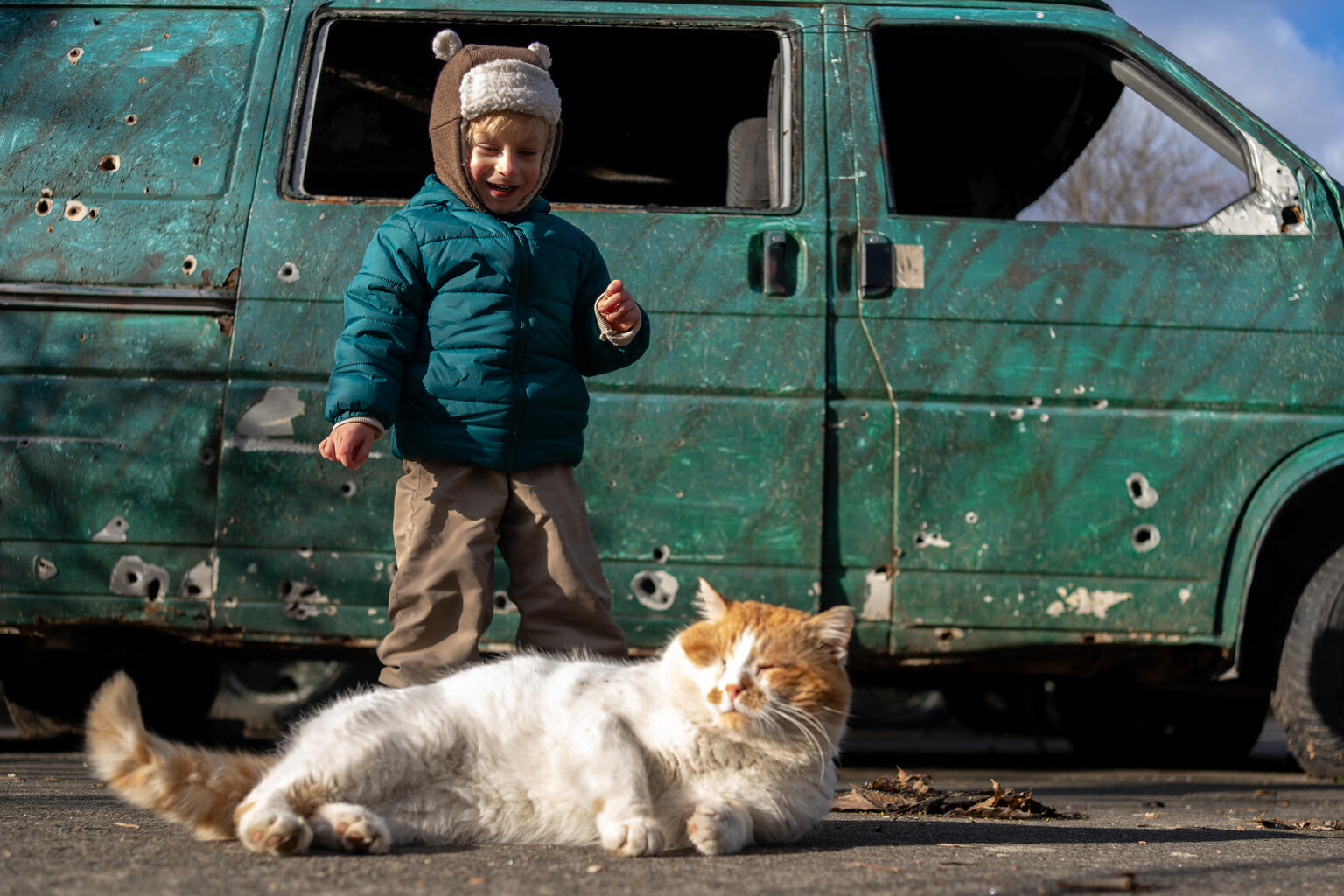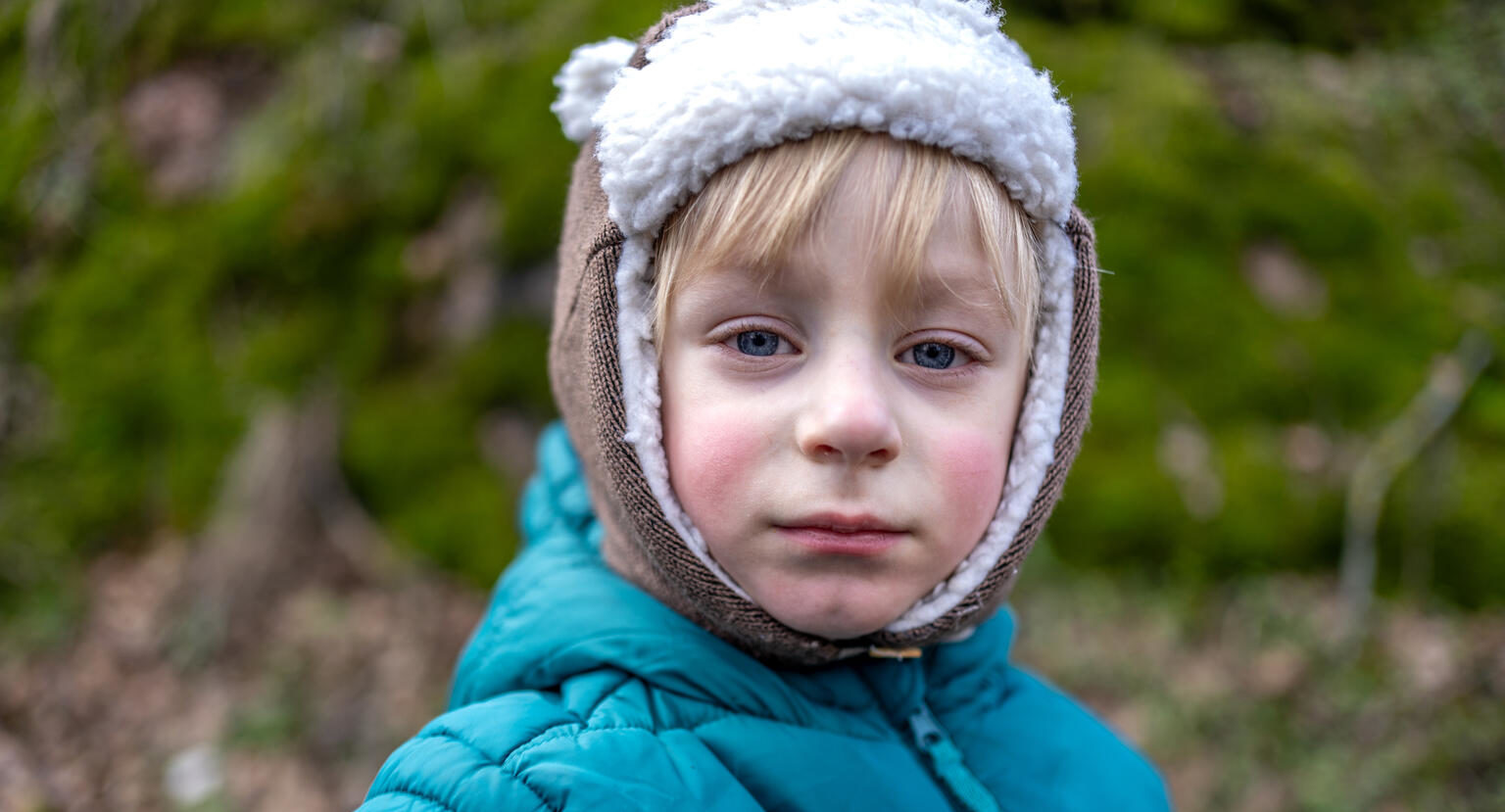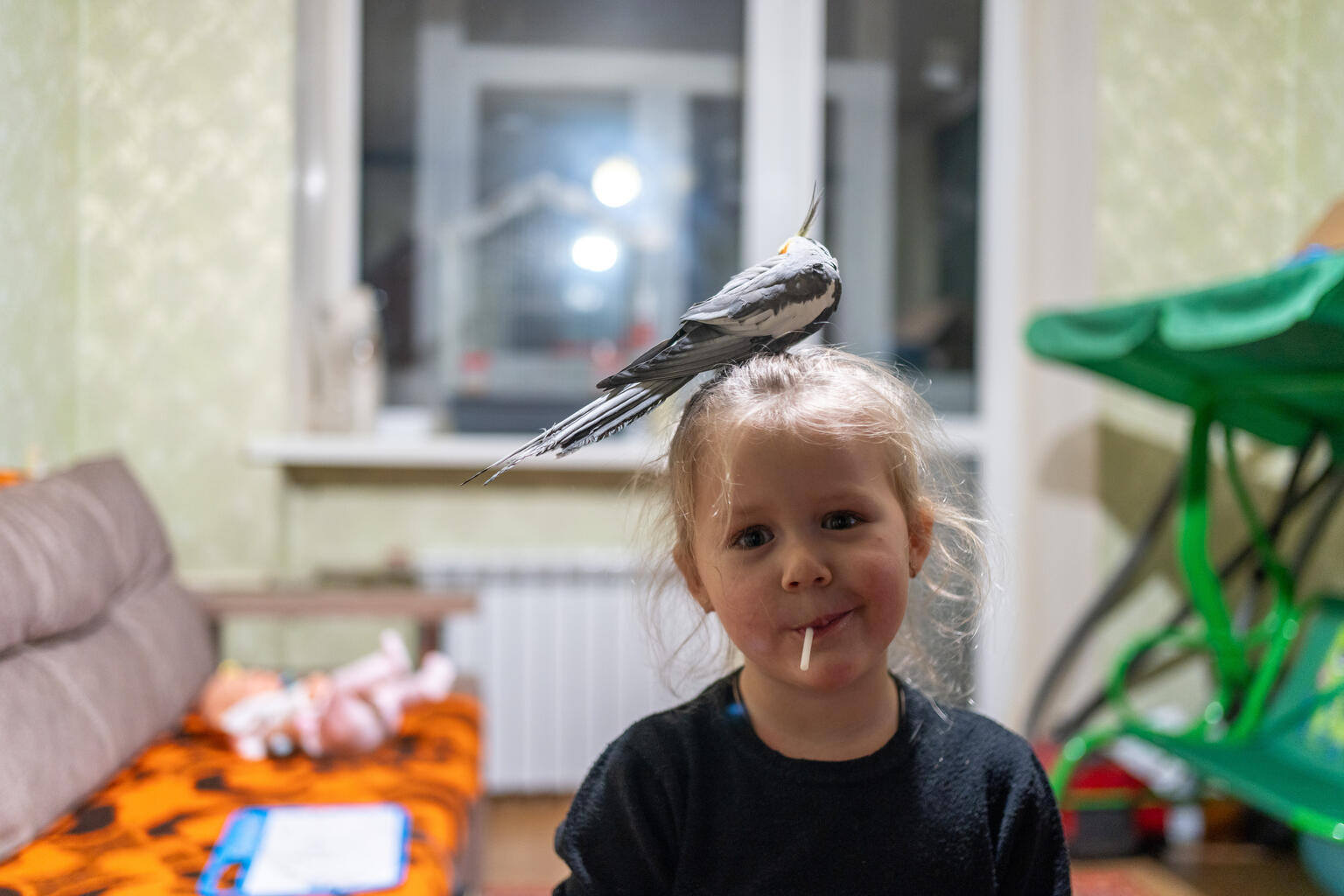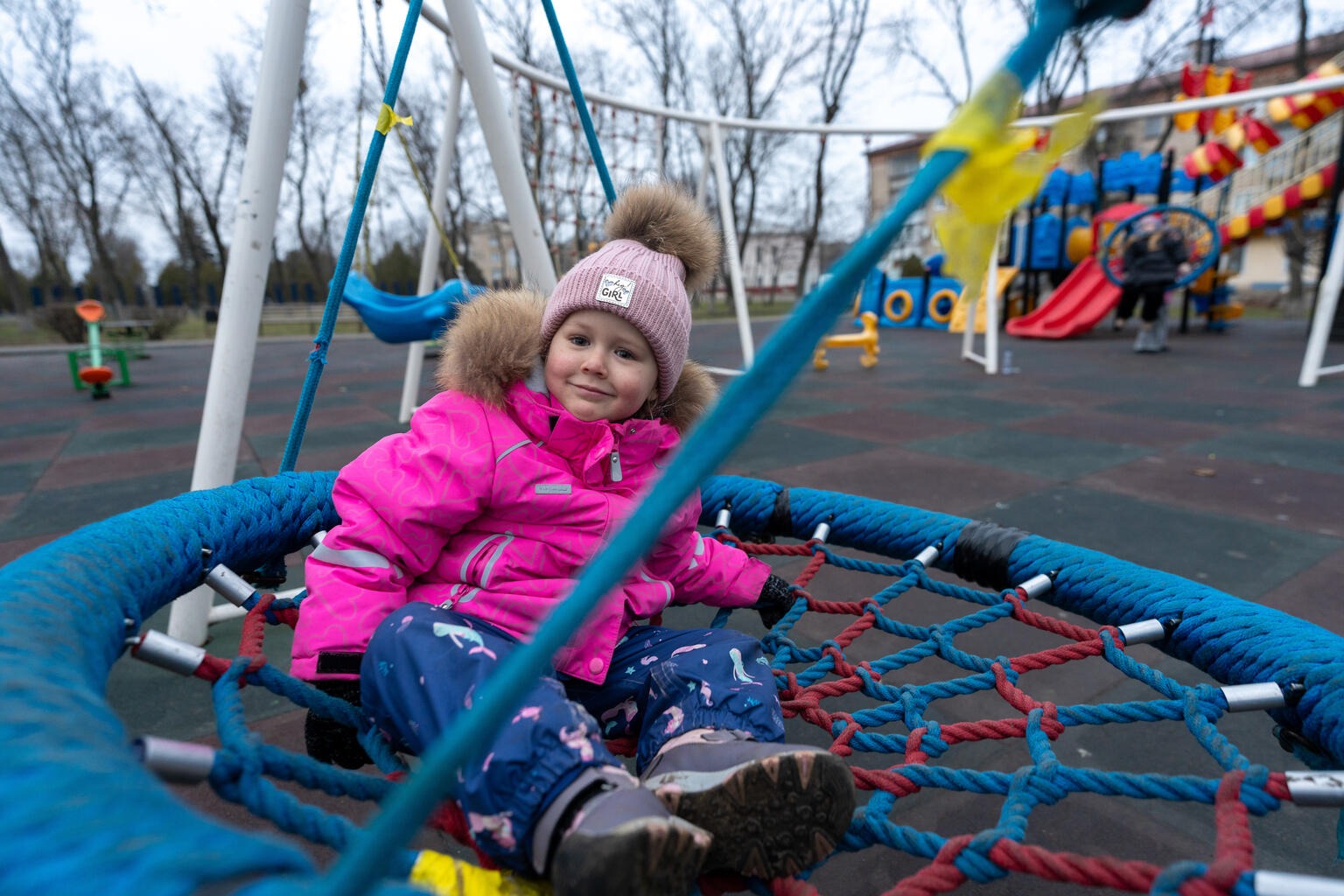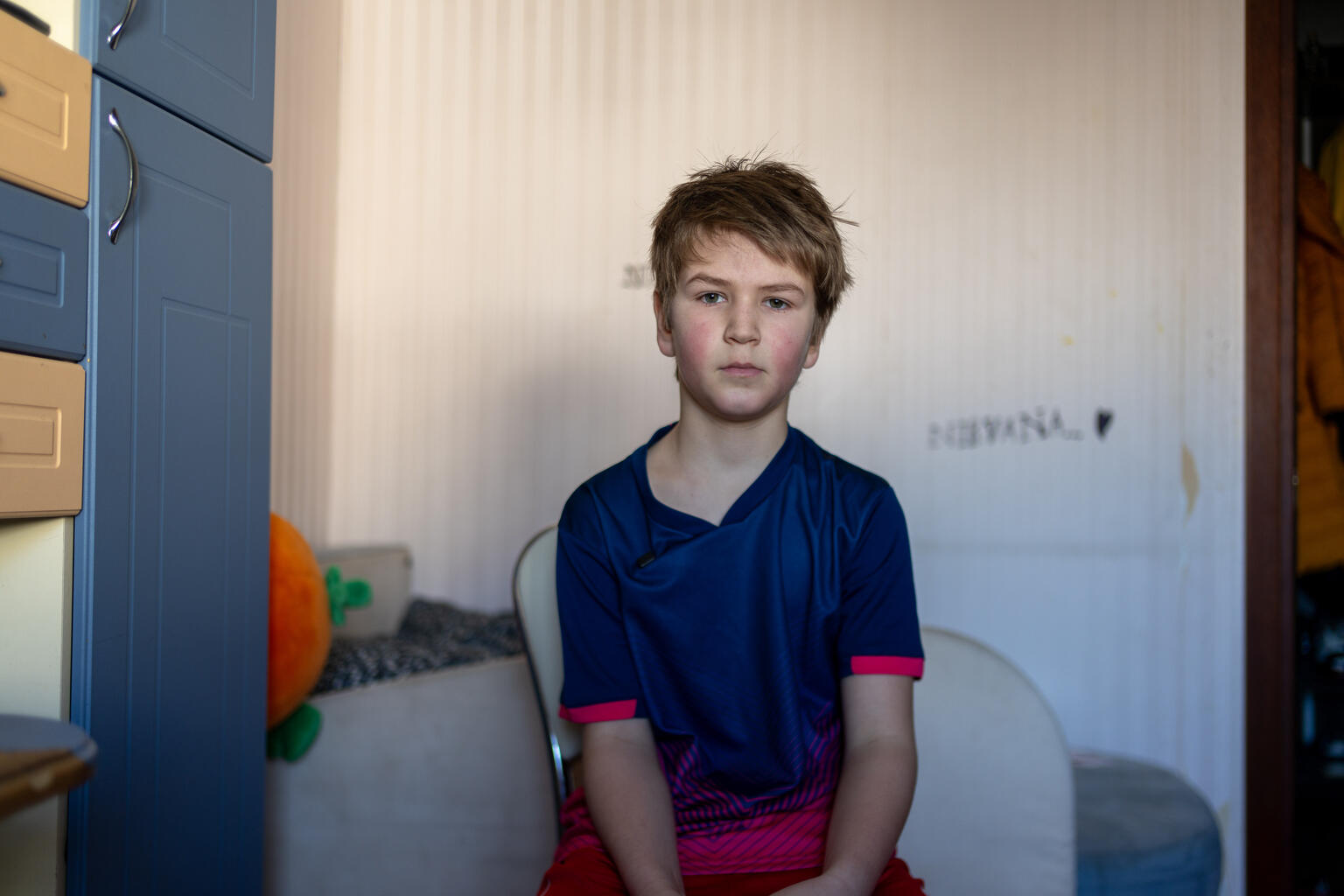Born into conflict
Katya is just three years old. Yet in this short time, the playful and cheerful little girl has already lived through aerial bombings, evacuation and separation from her father. Her life has been one of relentless trauma.
“Parents often say that small children do not understand what war and shelling mean,” said Alyona, Katya’s mother. “But that is not true.”
Alyona spent the first month of the war cuddling her child in the darkness of a damp basement, terrified of the deafening explosions outside.
“I will never forget the expression in Katya’s eyes,” Alyona said. “She seemed frozen – she understood that something unimaginably terrible was happening.”
Displacement
Alyona was forced to flee the country with her daughter, leaving Katya’s father behind. But Katya missed her father too much, and they soon returned to the danger of Ukraine.
The family now lives in central Balakliia. The local kindergarten is closed, but Alyona takes her daughter to UNICEF-organised classes.
“She has changed so much since we returned home,” she said. “She communicates more with other children now, because it’s easier for her to understand them here. She’s made her first friends, and she immediately started speaking more at home.”
However, life for the family remains difficult. Air raid sirens are a daily reality. Alyona cannot go to work, as she has no one to leave her daughter with. But she tries to stay positive.
“We survived terrifying shelling, we survived emigration and now we are finally home,” she said. “I cannot allow myself to fall apart because Katya will feel it too. So we hope for the best. I believe the war will end.”
